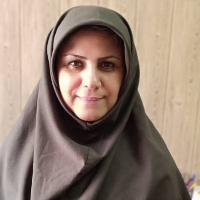A Comparative Analysis of the Components of Extra-Role Behavior in Educational Organizations with an Emphasis on the Educational Teachings of Islam
Author(s):
Article Type:
Research/Original Article (دارای رتبه معتبر)
Abstract:
This research aims to identify the components of extra-role behavior in educational organizations with an emphasis on the educational teachings of Islam. The research method is both qualitative and quantitative. The statistical population of the research consists of two parts: a) the Holy Quran, Nahj al-Balaghah, and management books; b) specialists of educational management, educational sciences and Islamic knowledge. The data sampling was targeted in the first part, the sources were studied in depth, and the data were continuously analyzed using categorization and coding, and the categories were extracted. Then, in order to confirm the appropriateness of the categories to the objectives of the research, the viewpoints of 32 specialists in educational management and educational sciences and 20 specialists in Islamic Education were collected by two researcher-made questionnaires and analyzed using descriptive statistics. Cronbach’s alpha of the questionnaires were calculated 0.797 and 0.896 respectively. The finding show that the components of extra-role behavior in the knowledge of management are as follow in order of priority: gentility and respect, endeavor, perseverance and enthusiasm, social customs, self-development, self-affirmation and collaborative behaviors, development of positive attitudes and constructive tendencies, organizational conscience and organizational obedience, individual initiative, organizational involvement, organizational loyalty and nobility. And the components of extra-role behavior in the teachings of Islam are also as follow in order of priority: consolidation of friendship links and removing interpersonal indignations; focusing on giving increasing beneficence; transcendental response; targeted assistance; covering the imperfections of the individuals; providing spiritual support; avoiding revenge despite having power; paying attention to those who express their needs; goodwill; pre-demand assistance; empathy and sympathy; striving and endurance beyond expectations; avoiding magnification of problems; separation ability; active and constructive role in criticism and suggestion; strengthening spirit and vitality; showing respect and veneration for the individuals’ personalities. There are similarities and differences between the components of extra-role behavior in management and Islamic contexts. Therefore these components can be studied on a comparative basis regarding the triangle of support, development and innovation.
Keywords:
Language:
Persian
Published:
Journal of Applied Issues in Islamic Education, Volume:4 Issue: 10, 2019
Pages:
87 to 116
magiran.com/p2016349
دانلود و مطالعه متن این مقاله با یکی از روشهای زیر امکان پذیر است:
اشتراک شخصی
با عضویت و پرداخت آنلاین حق اشتراک یکساله به مبلغ 1,390,000ريال میتوانید 70 عنوان مطلب دانلود کنید!
اشتراک سازمانی
به کتابخانه دانشگاه یا محل کار خود پیشنهاد کنید تا اشتراک سازمانی این پایگاه را برای دسترسی نامحدود همه کاربران به متن مطالب تهیه نمایند!
توجه!
- حق عضویت دریافتی صرف حمایت از نشریات عضو و نگهداری، تکمیل و توسعه مگیران میشود.
- پرداخت حق اشتراک و دانلود مقالات اجازه بازنشر آن در سایر رسانههای چاپی و دیجیتال را به کاربر نمیدهد.
In order to view content subscription is required
Personal subscription
Subscribe magiran.com for 70 € euros via PayPal and download 70 articles during a year.
Organization subscription
Please contact us to subscribe your university or library for unlimited access!




